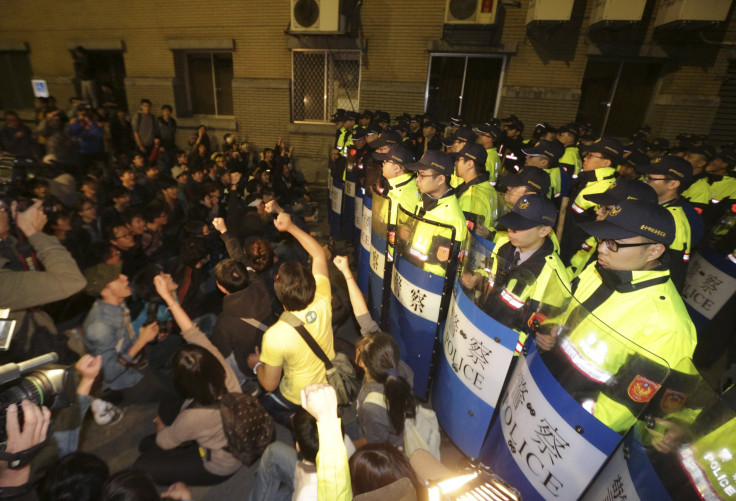Taiwan Student Protests And Hong Kong Actor Boycott Highlight Deep Rooted Cross-Strait Problems

While the leaderships of the two Chinese republics, in Beijing and Taipei, strive to improve relations, sentiment on the ground between mainland China and Taiwan continues to show underlying animosity.
At the center of Taiwan and China’s latest controversy is the Cross-Strait Service Trade Agreement, an economic deal intended as a step in thawing relations. The deal would let various economic sectors on both sides of the Taiwan Strait open up, allowing for a more fluid exchange of investment and opportunity. But many of Taiwan’s young people fear the economic impact of such a deal on the island.
In an official statement, one student group wrote that their unhappiness with Taipei’s agreement to the deal with China goes beyond “always being against anything related to China.” Rather, they wonder what Chinese investment would mean for jobs and entrepreneurship locally. “In the future, Taiwanese small and medium-sized enterprises will face challenges from competition with Chinese-invested companies that have abundant capital and use vertically integrated models,” the statement read. In addition, “the entrepreneurship haven that we used to be proud of will be gradually taken over by foreign corporations.”
Student-organized protests in Taipei highlight the distrust and resistance the general Taiwanese public has for mainland Chinese investment and migration, and an underlying sense of xenophobia.
Conversely, vitriolic online comments directed at a Hong Kong celebrity highlighted a similar sentiment among mainland Chinese. Netizens on the popular social media platform Weibo have campaigned for celebrities supporting the student protests in Taipei to “get the hell out of China.”
At the center of the controversy is Hong Kong actor Chapman To, who received waves of hatred after expressing support for the Taiwanese students. According to China Digital Times, a Weibo discussion page titled “Block Chapman To from the Mainland” quickly accrued nearly 55,000 user "likes." Many suggested boycotting To’s movies, and not allowing distribution on the mainland. Not only did To upset thousands of Chinese netizens, but the CEO of Beijing Maite Media, Chen Lizhi, vowed not to employ him in future film productions.
While Beijing and Taipei take steps toward improving cross-strait ties at the state level, the public fallout on both sides, particularly online, shows two peoples if anything growing apart. Though the trade agreement is unlikely to be ultimately affected by the protests, a real thaw in relations will have to come not only at China and Taiwan’s highest levels, but also from the public.
© Copyright IBTimes 2024. All rights reserved.





















